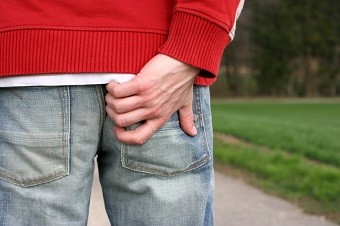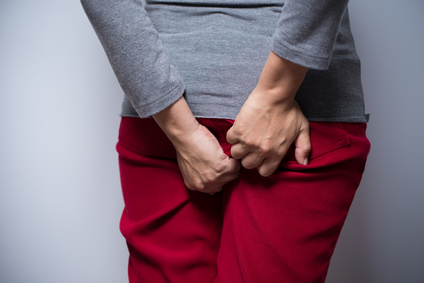Rectal Discomfort Meaning, Causes, Treatment
The rectum is the last part of the large intestine that leads to the anus. Stool that is stored in the colon is pushed into the rectum and then passed out during defecation. Although the rectum is just 4 to 5 inches long a number of diseases can affect it that cause significant discomfort. Rectal conditions are very common but often present in a similar way such as pain or itching in the rectum, bleeding from the rectum and in the stool, as well as changes in bowel movement like diarrhea.
Meaning of Rectal Discomfort
We can often describe specific symptoms like pain and itching. However, there are times where there is discomfort which is neither itching, nor burning or pain. Rectal discomfort is an uncomfortable sensation of the lowest part of the colon. It is often worsened when sitting for long periods or after passing stool but can persist even without these actions. Accurately describing rectal discomfort can be difficult.

Unusual sensations may occur for various reasons. Inflammation is a common cause. It is a response to tissue damage and is marked by swelling, pain and redness. Sometimes discomfort and not pain is felt in the early stages of inflammation. However, it is also possible that abnormal sensations may arise from the rectum despite there being no inflammation in the area which is usually due to nerve problems. Pressure on the rectum from surrounding structures can also cause discomfort.
Causes of Rectal Discomfort
Many of the same cause of itchy rectum, rectal pain and burning in the rectum can also cause rectal discomfort. The conditions may also overlap with the cause of rectal bleeding. Most of the time rectal discomfort is due to mild conditions that can be easily remedies and prevented with simple lifestyle or dietary measures.
Poor Hygiene
One of the more common reasons for rectal discomfort is actually a problem of the anus and surrounding skin (perianal area). Feces that have not been properly removed with wiping following a bowel movement can irritate the anus and the skin around it. However, excessive wiping can be just as detrimental.
Trauma
There are number of reasons why trauma to the anus and rectum may occur. Excessive wiping, vigorous washing and scratching the area can cause trauma to the anus and sometimes even to the rectum. Some degree of irritation may also occur during a colonoscopy and can persist for a short while thereafter. Anal intercourse or rough insertion of a suppository may also cause rectal trauma.
Hemorrhoids
Hemorrhoids, commonly know as piles, is inflammation and swelling of blood vessels in the rectum and anus. There are many reasons why it occurs but constipation, sitting on the toilet for too long and straining during bowel movements. It can be a long term condition with periods of acute symptoms. Apart from discomfort, itching and bleeding are also common.
Diarrhea
Diarrhea is a symptom that can be due to various causes. It is often associated with infections in acute cases. The repeated passing of stool which is often copious and watery can irritate the rectum and anus. It may lead to discomfort that is worsened after passing diarrheal stool.

Fecal Impaction
Feces that becomes hard and dry may obstruct the colon or rectum because it cannot be expelled. This is known as fecal impaction. It is usually a condition associated with constipation. The feces may have to be manually broken down if stool softeners and laxatives do not work. A person may feel like there is something stuck in the rectum.
Bowel Disease
The rectum is part of the bowel and may bowel diseases can also affect the rectum. This includes:
- Inflammatory bowel disease (IBD)
- Proctocolitis (often due to an infection)
- Diverticulitis
- Colorectal cancer
Enlarged Prostate
The prostate lies in front of the rectum. Due to the close proximity, an enlarged prostate can press against the rectum and cause discomfort even though there is no problem in the rectum itself. The discomfort is more likely to be severe when the rectum is filled with stool or if the prostate is very enlarged. This may be due to benign prostate hyperplasia (BPH) or prostatitis and sometimes can occur with prostate tumors
Rectal Prolapse
A rectal prolapse is a condition where a portion of the rectum protrudes through the anus. It occurs when the rectum becomes stretched and the rectum no longer has adequate support. The sensations associated with a rectal prolapse can vary but it is usually a discomfort rather than severe pain. Bleeding from the rectum is another cause.
Treatment of Rectal Discomfort
The treatment of rectal discomfort depends on the underlying cause. It therefore varies significantly. Some conditions can be treated with lifestyle changes or medication while other conditions may require surgery. The cause of rectal discomfort should always be diagnosed by a doctor. Sometimes the conditions with most severe symptoms may not be serious while other conditions with mild symptoms can be life-threatening.
The common and often less serious causes should first be excluded provided that there are no serious symptoms like copious rectal bleeding, persistent diarrhea, fever, loss of appetite and unexplained weight loss. The following measures may help to ease the discomfort:
- Do not wipe excessively or vigorously with dry toilet paper after a bowel movement. Wetting the paper slightly can help with cleaning.
- Avoid sitting on the toilet for long periods. Reading or playing with a mobile device while having a bowel movement are common contributors to this habit.
- Consider a sitz bath. This involves sitting in a bath that is up to the hips and filled with warm water. Salt can be added to the water. It helps with soothing hemorrhoids symptoms.
- Wash the anal area during bathing but do not be too vigorous. Ensure that all soap is rinsed off and the area is dried thoroughly afterwards.
- Always use good quality toilet paper. Sometimes the material used in the toilet paper can hurt the anus or even trigger and allergic reaction.
These measures are not a means of treating rectal discomfort indefinitely. It still requires medical attention if the discomfort is ongoing or becomes painful and is accompanied by other symptoms like rectal bleeding. Even recurrent rectal discomfort should be medically assessed especially with the rising incidence of rectal cancer.
Last updated on September 25, 2018.





